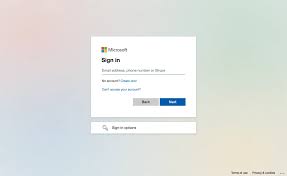Hiring good developers can be difficult, but the problem becomes more challenging when you need to hire Python developers. The language itself can be difficult to learn, and if you don’t have someone on your team who already knows it well, that only complicates things further.
1) Ensure your job posts are clear
If your job description is unclear, you might find yourself struggling to fill an opening. Make sure that your requirements and responsibilities are clearly stated, so that only candidates who meet them will apply. The clearer you are about what you want and what your company offers, the higher your success rate with hiring python developers will be.
2) Choose a platform with a good reputation
Many companies are turning toward sites such as GitHub, Stack Overflow and Quora for insight into which developers have what it takes. By reviewing a developer’s activity on these platforms, you can get a sense of how they communicate with other developers, what they build and whether they’re up-to-date on technology. If you want to hire Python developers who can make an impact right away, choose a platform with a strong reputation.
3) Automate some tasks and save time
If you’re currently hiring python developers or even if you’re managing an existing team, it can be easy to get lost in some of the day-to-day tasks. Some tasks are repetitive and time consuming, but some of these tasks don’t necessarily need to be done on a daily basis, which is where automation comes into play. Setting up simple workflows that automate recurring tasks will save you tons of time over a 30-day period.
4) Offer competitive salaries
The tech industry is famous for its high salaries, but it’s important not to go overboard. The median salary for a developer is $90,000 per year, with 75th percentile salaries starting at $100,000 and going up from there. While these figures may seem pretty good, keep in mind that an experienced developer could command up to twice that amount—which puts your salary on par with a lot of other industries! This is especially true if you live somewhere like Silicon Valley.
5) Keep the interview process short
You’re likely looking for a number of different traits, but it may be helpful to hire someone who already has experience working with a particular piece of software. In that case, only have them come into your office for a short interview process. The shorter it is, and simpler it is (no coding tests), the more likely you are to make a good hire.
6) Leverage social media to find qualified candidates
Looking for top developers who are actively using social media sites such as Twitter and LinkedIn is a great way to ensure you’re hiring highly skilled programmers. You should also search for candidates on professional forums such as Stack Overflow, GitHub and Quora. Reach out via direct message or comment to start a conversation with these individuals, after verifying their skills and experience online.
7) Don’t be afraid to reach out directly
People who are not sure whether they want to work for your company might be more willing to talk if you contact them directly, especially when you ask specific questions about their background. Also, don’t be shy about sharing your concerns about a candidate’s skills and experience level when asking for an informational interview—it might get some good candidates interested.
8) Update your resume database regularly
As you hire and interview more people, it can be a challenge to stay up-to-date on where they are in their careers. Many companies use resume databases that allow hiring managers and recruiters to input job candidates and store their resumes securely—but only HR professionals have access. Make sure your company is using a system like ClearCompany so that even if you’re not actively looking for new employees, you still have all your candidates’ contact information at your fingertips.
9) Provide salary data on your website/job posting
Providing salary data on your website/job posting can often lead to reduced number of candidates applying. Why? Because most developers will quickly do some research on your company’s salary range, and they don’t want to spend time applying if they won’t get paid enough (or could get paid more elsewhere). On top of that, it takes work for an individual developer to find out information like that—the easier you make it for them, the more likely they are willing to apply.
10) Review candidate experience after hiring
A happy candidate tells their friends and colleagues about your company. A disgruntled candidate tells everyone they know how horrible your hiring process was and how disappointed they are with your company. Do whatever you can to make sure a candidate has a positive experience, both before and after hiring.





More Stories
Impact of Chase Bank Branch Closing
A Comprehensive Guide to Brian Higgins Stock Trades
How to Maximize the Benefits of Frosting AI